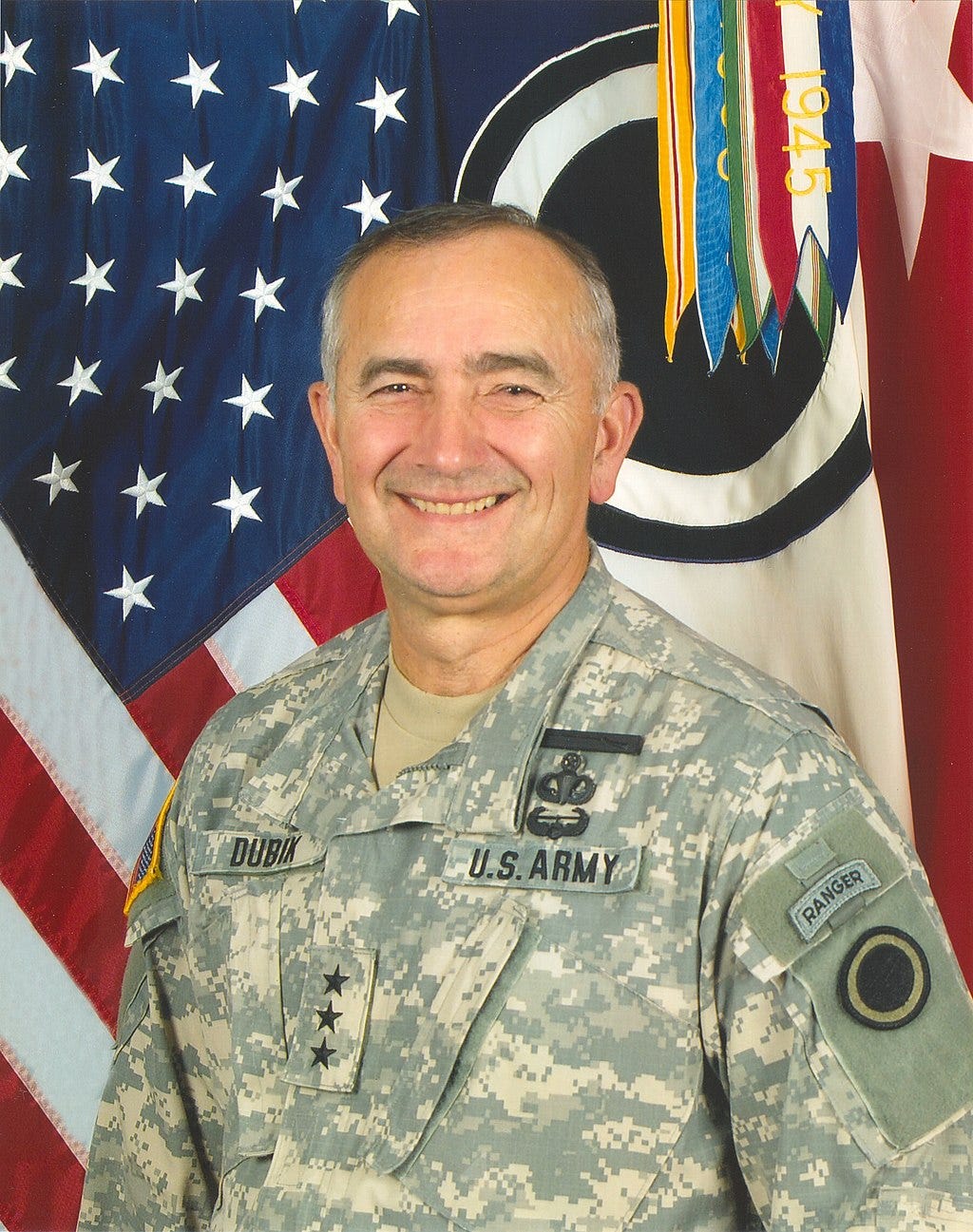I Read Your Article
How the LTG (R) James M. Dubik Writing Fellows Program Transformed My View on Writing in the Profession of Arms
This guest post highlights the brand new LTG (R) James M. Dubik Writing Fellows Program. Applications are due 15 February 2025. Please send your submissions here.
I submitted my first article in 2023 to MOPs and MOEs. That piece captured the chronology of how our team leveraged the Health and Holistic Fitness program to maintain health and fitness during high operational times. I sought to break the cycle of organizational compromise between operations and fitness/health. We found a way and I wanted to get the word out for others to feel encouraged to try creative solutions, using our model as a proof of concept.
Shortly after, I wrote about two validation exercises, planned and executed for two maintenance teams, that I had the privilege of leading in two different units. The article, published with From the Green Notebook, focused on prioritizing tactical and operational training for maintainers.
A few weeks after publication, I was approached by a maintenance chief warrant officer in a foreign country while deployed. I did not know him, but he recognized my nametape. He shared that he recognized me as the author of an article he read and how much he resonated with the message and call to action. He said he printed it immediately and distributed it to his team.
Within a few days, I received emails from the Chief of Ordnance, a foreign liaison officer in the Combined Arms Support Command (CASCOM), the CASCOM Commanding General, and a senior Ordnance Chief Warrant Officer. One of those emails said, “Keep sharing your story with our Army teammates.” The article reached our community, and people were thinking about and discussing the message.
“Am I Too Junior?”
I uttered these words to a close mentor as the call for applications circulated digital platforms for the brand new LTG (R) James M. Dubik Writing Fellows Program (submissions can be made here). The program seeks to revitalize professional writing and discourse across the military and national security community. While not new to the Army, having served as an active duty enlisted noncommissioned officer prior to commissioning, I assumed I had nothing of value to contribute to this conversation. Frankly, I assumed they wanted to hear from a multi-degreed senior officer. I was wrong, and that’s why I have mentors.
Encouraged to apply, I took a leap of faith and submitted my application. After selection to the program, our cohort held meetings, communicated across email chains and networking sessions, and engaged with leaders and editors across the branch journals and publication outlets. It has been an incredible space to engage with diverse professionals who all share the same passion for using writing to reach our communities. I felt challenged, inspired, and stimulated by these warrior-scholars. Additionally, as a non-resident program, it fit well with my busy schedule, allowing me to continue full-time service and personal life.
Share Your Story
The best part of being a writing fellow is talking to service members about writing. The last few years of my career took me across 10 countries in multiple theaters. There is no better place to meet hundreds of service members across different units and components. I recently sat down with an Army Reserve noncommissioned officer who wanted to share her observations about utilization of her sustainment function in a deployed environment. I smiled and said, “you should write about this, the Army needs to hear your story.” The following night we poured over doctrine and past articles, leveraging the new Line of Departure website to find what has been written about the topic. I coached her through where to start in consolidating her ideas, lessons learned, and recommendations. There is no rank, time in service requirement, or background required to having an idea worth writing about it. As this leader is living the environment daily, at ground-level, her message is important to our Army.
To adapt to the changing environments, we must leverage the on-ground assessments, lessons learned, and new ideas across our formations. Writing and reading is one way for us to reach our service members quickly and engage decision makers, practitioners, and stakeholders. Our stories matter, and they will continue to matter. I am thankful for the renewed focus on writing in our profession and programs and initiatives like the Harding Project and the LTG (R) James M. Dubik Writing Fellows Program. It is more important now than ever that we write.
First Lieutenant Melissa A. Czarnogursky is a LTG (R) James M. Dubik Writing Fellow. She currently serves in the CENTCOM DDOC/ CCJ4 (forward deployed). Her previous assignments include Assistant Brigade Mobility Officer for 108th Air Defense Artillery Brigade, Company Executive Officer for Echo Maintenance Company 1-7 ADA, the Battalion Maintenance Officer for 8A HHBN, a platoon leader for various sustainment formations, and is a prior enlisted Field Artillery Sergeant. Her operational experience includes service and deployments in AFRICOM, CENTCOM, and PACOM.



